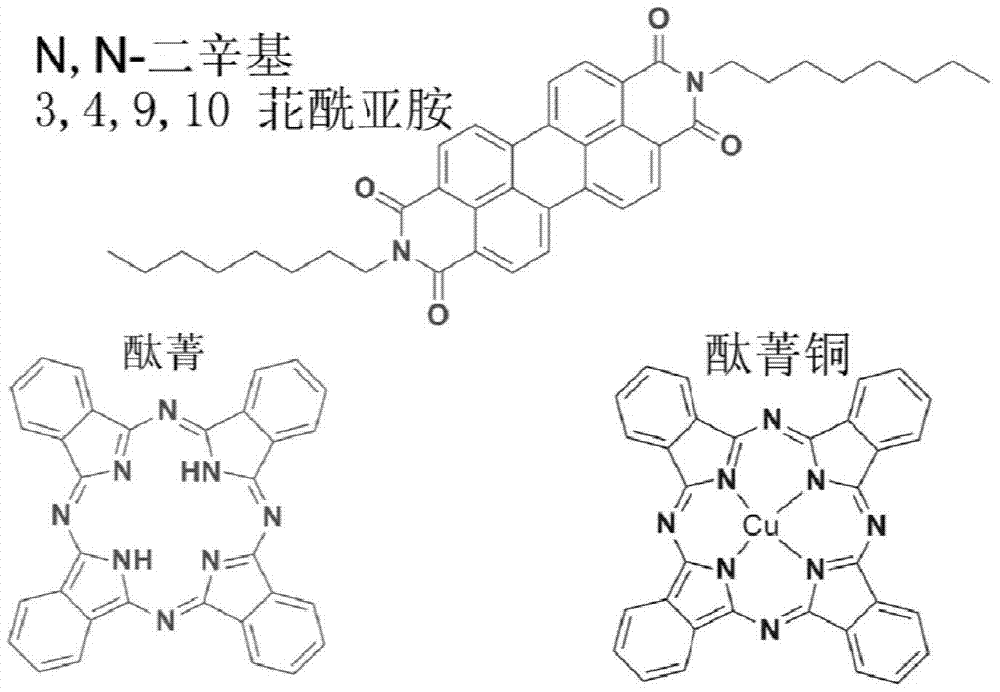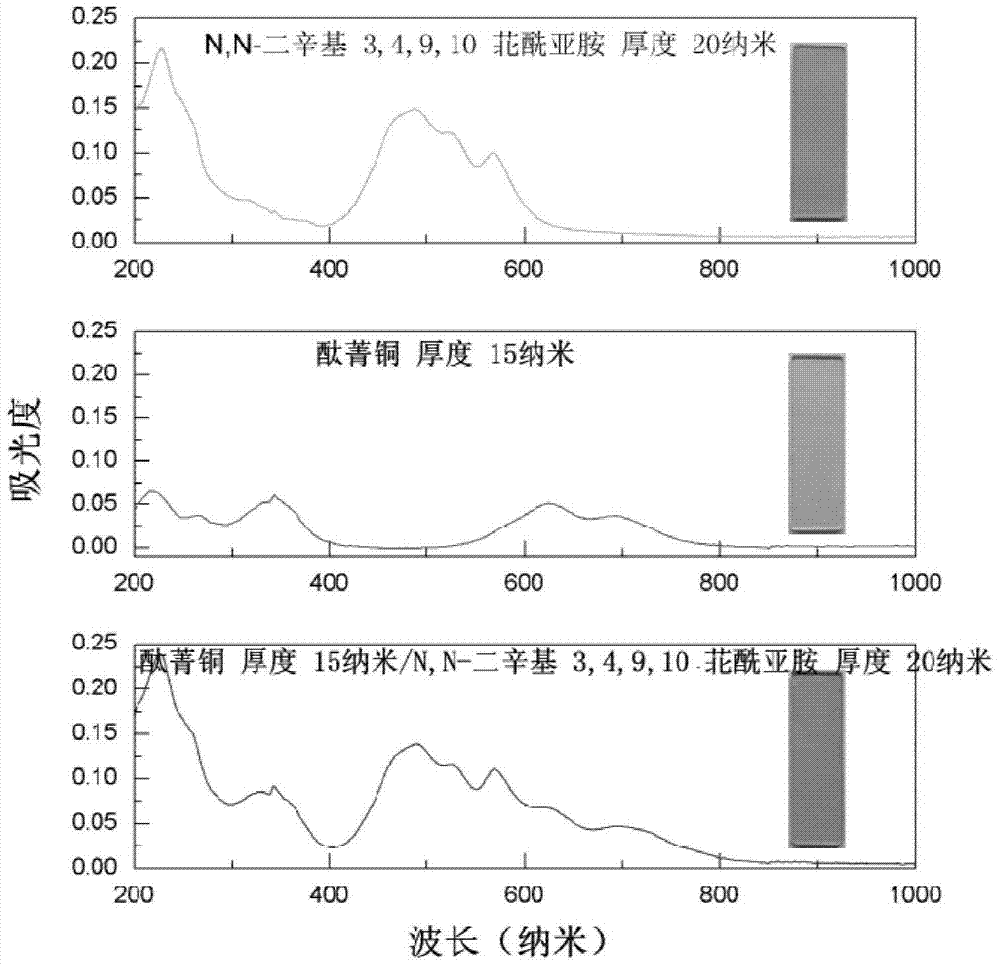Organic heterojunction thin film photoresistors and photosensitive voltage dividers based on organic conjugated molecules
A voltage divider and heterojunction technology, applied in the field of materials, can solve problems such as damage to the human respiratory tract, liver and kidneys, and limit the use of cadmium, and achieve the effect of cheap, low-cost, and wide-ranging sources
- Summary
- Abstract
- Description
- Claims
- Application Information
AI Technical Summary
Problems solved by technology
Method used
Image
Examples
Embodiment 1
[0054] Example 1. Preparation of copper phthalocyanine / peryleneimide photoresistors, peryleneimide photoresistors and phthalocyanine resistors on flat glass and their application in visible light detection
[0055] 1) Clean the substrate
[0056] The flat glass was ultrasonically cleaned with concentrated sulfuric acid, hydrogen peroxide, water, deionized water, ethanol and isopropanol for 5 minutes, and then dried; ordinary polyethylene terephthalate plastic sheets were ultrasonically cleaned with acetone for 5 minutes, Ready to use after drying;
[0057] 2) Fix the substrate treated in step 1) on the rotor of a desktop homogenizer, and add dropwise a dilute solution of N,N-dimethylformamide dissolved in polyacrylonitrile (the concentration of polyacrylonitrile is 30mg / ml) Or the toluene solution of polyphenoxy ether (polyphenoxy ether concentration is 30mg / ml), spin coating at a constant speed of 3000 rpm for 60 seconds, and form a dense and pinhole-free polymer film on the...
Embodiment 2
[0067] Example 2. Preparation of a photosensitive voltage divider constructed of all-organic conjugated molecules on flat glass
[0068] 1) The flat glass was ultrasonically cleaned with concentrated sulfuric acid, hydrogen peroxide, water, deionized water, ethanol and isopropanol for 5 minutes, and then dried; ordinary polyethylene terephthalate plastic sheets were ultrasonically cleaned with acetone for 5 minutes. Minutes, dry and ready to use;
[0069] 2) Fix the substrate treated in step 1) on the rotor of a desktop homogenizer, and add dropwise a dilute solution of N,N-dimethylformamide dissolved in polyacrylonitrile (the concentration of polyacrylonitrile is 30mg / ml) Or a toluene solution of polyphenoxy ether (polyphenoxy ether concentration is 30mg / ml), spin coating at a constant speed of 3000 revolutions per second for 60 seconds to form a dense and pinhole-free polymer film on the flat glass;
[0070] 3) Put the substrate obtained in step 2) into a vacuum oven and he...
PUM
 Login to View More
Login to View More Abstract
Description
Claims
Application Information
 Login to View More
Login to View More - R&D
- Intellectual Property
- Life Sciences
- Materials
- Tech Scout
- Unparalleled Data Quality
- Higher Quality Content
- 60% Fewer Hallucinations
Browse by: Latest US Patents, China's latest patents, Technical Efficacy Thesaurus, Application Domain, Technology Topic, Popular Technical Reports.
© 2025 PatSnap. All rights reserved.Legal|Privacy policy|Modern Slavery Act Transparency Statement|Sitemap|About US| Contact US: help@patsnap.com



